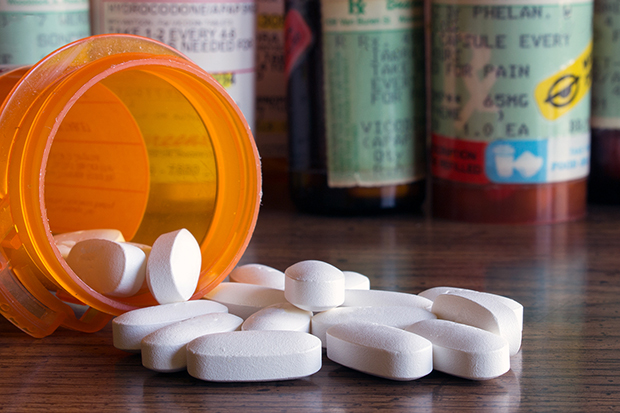Prescription Opioids What You Need to Know
Here’s what you should know about prescription opioids—including side effects, risks, alternatives, and proper ways to dispose of the medication.

Prescription opioids are medicines used to help relieve severe pain. They are often prescribed after a surgery or injury, or for certain health problems. Some common opioid medicines are codeine, hydrocodone, methadone, morphine, and oxycodone.
These medicines can be an important part of treatment, but they also come with serious risks. It’s important to work with your doctor to make sure you are getting the safest, most effective care.
If you are prescribed opioids for pain:
Be informed
- Keep your prescription in the bottle. Make sure you know:
- The name of your medicine
- How much to take
- How often to take it
- What the side effects may be
- When to call your doctor
Take your medicine only as directed—don't take the pills more often.
Follow up with your primary care doctor
With your doctor, you can:
- Work together to create a plan on how to manage your pain
- Talk about ways to help manage your pain that don’t involve prescription opioids
- Talk about your concerns and side effects
Ask your doctor or pharmacist if you should get a naloxone kit. Naloxone is used to counter the effects of opioids and can save your life if you have an accidental overdose.
Related: Opioid Misuse and the Importance of Medication Safety
Help prevent misuse and abuse
- Never sell or share prescriptions opioids.
- Never use another person’s prescriptions opioids.
- Lock up prescription opioids in a safe place and out of reach of others. This may include visitors, children, friends, and family.
- Don't keep them in your medicine cabinet where anyone can find them.
Know your options
Talk to your doctor about ways to manage your pain without opioids. Other methods might work better and have fewer risks and side effects. Options may include:
- Other pain relievers such as acetaminophen (Tylenol), ibuprofen (Advil, Motrin), or naproxen
- Physical therapy and exercise
- Working with a therapist to help learn ways to change the triggers of pain and stress
- Some medicines that are also used for depression or seizures
What are the risks and side effects?
The biggest risks of prescription opioids are addiction and overdose. Risks are higher when you use them for a long time. An opioid overdose can cause slowed breathing and sudden death.
Prescription opioids can have side effects, even when taken as directed. These include:
- Constipation
- Tolerance
- Physical dependence
- Greater sensitivity to pain
- Nausea, vomiting, and dry mouth
- Sleepiness and dizziness
- Confusion
- Depression
- Low levels of testosterone, which can lead to decreased sex drive, energy, and strength
- Itching and sweating
Risks are greater if you:
- Have a history of drug misuse, Substance Use Disorder, or overdose
- Are taking sedatives or you drink alcohol when taking prescription opioids
- Have a mental health condition such as depression or anxiety
- Have sleep apnea
- Have a disability (increases your risk for falls)
- Are age 65 or older, are confused, have dementia or another mental disability
- Are pregnant
Related: How to Talk to Your Kids about Opioids and Addiction
While you’re taking prescription opioids:
- Never use alcohol or street drugs. Taking them together can kill you.
- Unless your doctor specifically says it’s okay, don’t take any of these medicines:
Benzodiazepines
- Muscle relaxants
- Sleeping pills
- Other prescription opioids
- Don’t take any other pills or vitamins unless your doctor says it's okay.
- Don’t drive or use machinery when impaired by opioid medication.
Safely dispose of unused prescription opioids
Find your community drug collection site at useonlyasdirected.org or utahtakeback.org to safely dispose of leftover prescription opioids. It’s best not to flush medications in the toilet as they can contaminate the water supply.
While you’re here, check out our other articles on healthy living. For information on our medical and dental plans, visit selecthealth.org/plans.






